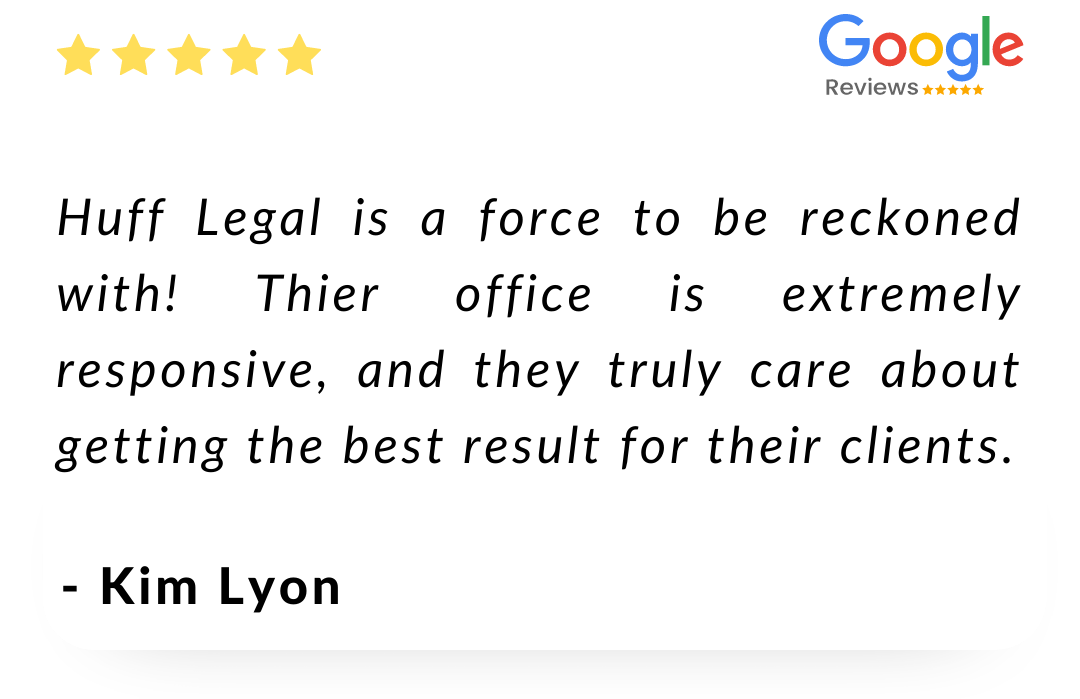Is Battery a Felony? A Criminal Defense Lawyer Explains
Is Battery a Felony? A Criminal Defense Lawyer Explains
When facing battery charges, it’s important to understand whether battery is considered a felony. Depending on the severity of the incident and the resulting injuries, battery can be classified as either a misdemeanor or a felony.
The problem is that many people don’t know the difference, which can cause confusion and anxiety about potential penalties. A felony battery charge can result in harsher consequences, including longer jail time and higher fines.
This article will break down the legal definitions, penalties, and defenses available for battery cases. By the end, you’ll have a clear answer to the question: is battery a felony?
Is Battery a Felony?
Yes, the battery can be charged as a felony in certain cases. This typically occurs when the battery involves severe injury or aggravating factors, known as aggravated battery. Felony battery is more severe due to the circumstances surrounding the crime.
Some examples of when the battery can be a felony include:
- Causing serious bodily injury, like broken bones or disfigurement.
- Using a deadly weapon.
- Committing battery in domestic violence or against law enforcement.
- Having prior battery convictions.
Felony battery is often classified into degrees (first and second) and can result in penalties like up to five years in prison or more, depending on the case.
Is Simple Battery a Felony?
No, simple battery is usually not a felony. In most places, simple battery is considered a misdemeanor offense. This type of battery involves minor physical contact or harm that does not result in serious injury.
For a simple battery charge to stick, the prosecutor must prove that you intentionally made physical contact with another person without their consent. The contact doesn’t need to cause visible harm; it must simply be offensive or unwelcome. Some common examples of simple battery include pushing someone out of the way, throwing an object that hits someone, or spitting on another person in an offensive manner.
Request a Free Consultation
Is Battery a Felony or Misdemeanor?
Battery can be either a felony or a misdemeanor, depending on the circumstances.
- Misdemeanor battery involves minor contact, such as pushing or shoving, without causing severe harm. Penalties include up to a year in jail or probation.
- Felony battery involves severe injury, the use of a weapon, or aggravating factors. Penalties are much stricter and can include years in prison.
The severity of the act and its consequences determine whether it’s charged as a felony or a misdemeanor.
What Does Aggravated Battery Mean?
Aggravated battery refers to a type of battery that results in serious bodily injury or involves aggravating factors, such as the use of a weapon. While simple battery involves minor physical contact, aggravated battery is more severe and often leads to harsher legal consequences.
Legal Definition of Aggravated Battery
Aggravated battery is legally defined as intentionally making harmful or offensive physical contact with another person, resulting in serious bodily injury. Under California Penal Code Section 243(d), aggravated battery occurs when the defendant causes a significant injury through an act of physical contact, whether or not they intend to cause that injury.
To be convicted of aggravated battery, the prosecution must prove three key elements:
- The defendant willfully touched another person in a harmful or offensive way.
- As a result, the victim sustained a serious bodily injury.
- The defendant was not acting in self-defense.
What Is a Serious Bodily Injury?
A serious bodily injury is an injury that significantly impairs a person’s physical condition. It goes beyond minor cuts or bruises and typically involves more severe damage.
Some examples of bodily severe injuries include:
- Broken bones or fractures
- Deep wounds that require stitches
- Stabbing injuries
- Disfigurement
- Concussions
- Organ damage or impairment
- Loss of consciousness
Aggravated Battery Legal Penalties
The penalties for aggravated battery can be severe and vary depending on the jurisdiction and the circumstances of the case. In California, for example, a conviction for aggravated battery under Penal Code 243(d) can result in:
- Up to one year in county jail (for a misdemeanor conviction)
- Two, three, or four years in state prison (for a felony conviction)
- Fines and restitution to the victim
- Probation, depending on the circumstances
The penalties may be even harsher in cases involving prior convictions or particularly egregious injuries. If the crime involved the use of a weapon or the battery was committed against a vulnerable person, like a child or elderly person, the charges and penalties could escalate further.
Aggravated Battery Legal Defenses
Depending on the specific facts, several defenses can be used in an aggravated battery case. Some common defenses include:
- Self-defense: If you acted to protect yourself or someone else from imminent harm, this could be a valid defense.
- Accidental contact: If the harmful contact was unintentional, it may be possible to argue that the battery charge should be dismissed or reduced.
- Lack of serious injury: If the victim’s injury does not meet the legal definition of a “serious bodily injury,” the charge may be reduced to simple battery.
- False accusations: In some cases, the alleged victim may have fabricated the incident, and a thorough investigation may reveal inconsistencies in their story.
Is Assault the Same as Battery?
No, assault and battery are not the same. Assault is the act of threatening or attempting to physically harm someone, while battery is the actual act of physically harming or making offensive contact with another person.
In simpler terms, assault is the attempt, and battery is the follow-through. For example, if someone swings their fist at another person but misses, that would be considered assault. If they make contact and harm the person, that would be considered battery.
In many cases, assault and battery charges are filed together, but they remain distinct legal offenses. Battery requires physical contact, whereas assault only involves the threat of harm or an attempt to make contact.
Is Assault the Same as Battery?
In California, the law treats battery as a serious offense, especially when it results in bodily harm. While “simple battery” only requires unwanted physical contact, when that contact causes serious injury, the charge becomes an aggravated battery. California Penal Code Section 243(d) PC outlines the laws governing battery that leads to significant injuries.
To convict someone of battery causing serious injury, the prosecutor must prove that:
- The defendant willfully touched someone else in a harmful or offensive way.
- The victim suffered serious bodily injury as a result.
- The defendant was not acting in self-defense or defense of others.
California Penal Code Section 243(d) PC: Battery Causing Serious Bodily Injury
California Penal Code Section 243(d) PC specifically addresses battery that results in serious bodily injury. Under this law, causing harm that impairs another person’s physical condition—whether through intentional or reckless actions—can lead to more severe consequences than simple battery.
This section of the law is essential because it recognizes that some battery offenses have a greater impact on the victim’s well-being and should, therefore, be treated as more severe crimes.
243(d) PC Explained
California Penal Code Section 243(d) states that if a battery leads to serious bodily injury, it can be charged as aggravated battery. The key elements of this charge include:
- Willful Contact: The defendant must have intentionally made contact with the victim in a harmful or offensive way.
- Serious Injury: The injury must impair the victim’s physical condition, such as a broken bone, concussion, or significant wound.
- No Self-Defense: The defendant cannot claim self-defense or defense of others if the battery wasn’t justified.
Even if the intent was just to harm slightly, if the injury is severe, the charge can still be elevated to aggravated battery under this section.

As Seen On












What Are the Punishments for Battery?
The penalties for battery vary depending on the severity of the case. If convicted of simple battery in California, you could face:
- Up to six months in jail.
- Fines of up to $2,000.
- Misdemeanor probation.
For aggravated battery, such as those charged under Penal Code 243(d) PC, the punishments are more severe and may include:
- Up to one year in county jail if charged as a misdemeanor.
- Two, three, or four years in state prison if charged as a felony.
- Higher fines and possible restitution to the victim.
Additionally, felony battery can lead to long-term consequences, such as a permanent criminal record, making it harder to find employment or housing. The injury’s seriousness and prior convictions can also affect the penalties.
What Are the Defenses for Battery?
Several defenses can be used to fight a battery charge, depending on the circumstances of your case. Some of the most common defenses include:
- Self-Defense or Defense of Others: If you acted to protect yourself or someone else from immediate harm, you may be able to avoid a battery conviction. This is one of the strongest defenses, especially if the force used is proportional to the threat.
- Accident: If the physical contact was accidental and not intentional, you may have a valid defense. Battery charges require that the contact was willful, so an accidental action does not meet that standard.
- Lack of Serious Injury: If the victim’s injury does not meet the legal definition of “serious bodily injury,” the charge may be reduced from aggravated battery to simple battery, which carries lighter penalties.
- Consent: In some cases, if the victim consented to the physical contact, this may be a defense to the battery charge. For example, if the contact occurred during a sporting event or other consensual activity, it may not qualify as a battery.
What Clients Say About Us





Schedule Your Free Consultation Today
FAQ
What makes battery a felony in California?
Battery becomes a felony in California when it causes serious bodily injury or involves aggravating factors like the use of a weapon. Aggravated battery under Penal Code 243(d) is typically charged as a felony due to the severity of harm.
Is 243 D a felony or misdemeanor?
Penal Code 243(d) can be charged as either a felony or a misdemeanor, depending on the severity of the injury and the circumstances of the case. The charge is more likely to be a felony if the injury is significant.
Is battery the same as assault?
No, battery and assault are different crimes. Assault is the attempt to cause harm, while battery is the actual act of making harmful or offensive physical contact.
What is the difference between PC 242 and 243 PC?
PC 242 defines simple battery, which involves minor physical contact, while PC 243 deals with battery that causes serious bodily injury, often referred to as aggravated battery.
Take Control of Your Defense Today
Understanding the differences between battery charges can be overwhelming, especially when facing legal consequences. Knowing your rights and potential outcomes is crucial to dealing with simple or aggravated battery.
At Huff Legal, we’re here to provide guidance and defense tailored to your situation. If you’re facing battery charges or have questions about your case, don’t hesitate to contact us.
Reach out today to schedule a consultation, and let our experienced attorneys help you navigate the legal process with confidence.
LET HUFF HELP YOU
As a former police officer and patrol supervisor and his time spent as a United States District Court Judicial Law Clerk to the Chief Judge, Attorney Huff knows how to navigate all levels of the complex criminal law system. We also have more than 55 years of combined experience dealing with various complex criminal legal matters and have helped just over 1,500 clients over the past few years.
Why Huff Is Your Best Option For Criminal Defense
55+ Years of Combined Experience
At Huff Legal, we have more than 55 years of combined experience dealing with complex criminal legal matters, which can oftentimes be quite challenging. In order to get the outcome you deserve, you need a team of experienced attorneys on your side, who can help you navigate the legal system, so you can move past this situation and focus on the life ahead of you!
5 Star Rating on Google
We have a proven track record of success and are dedicated to our clients’ best interests. If you’re looking for a law firm that will always have your back, look no further than Huff Legal. Just have a look at some of our amazing client reviews over here!
1,500+ Happy Clients
Over the years, we’ve had the privilege of helping over 1,500 clients with their legal needs. When you work with us, you can be confident that you’re getting the best possible legal representation. We’re proud of our track record and our reputation for being a firm that delivers great results.
What Our Clients Say About Us


Sheila


Abel Resendiz


Manuela Frazier


Doris
Contact Huff Today
Request A Free Consultation
* Free consultations only available for Criminal Defense


In legal terms, an accessory to murder refers to an individual who aids, abets, or otherwise assists in committing a murder. While the specifics may vary across jurisdictions, California law treats accessories to murder as active participants in the crime, holding them accountable for their actions. In San Francisco Bay Area, there are two primary types of accessories to murder:
In the event that you find yourself in the Bay Area facing accessory to murder charges, you should first call a criminal defense attorney who can help you defend your rights and lessen the effects of the investigation. Contact an attorney at Huff Legal as soon as possible following your arrest. An accomplished attorney from Huff Legal will thoroughly examine your case, who will then develop a strategy and build a defense.
